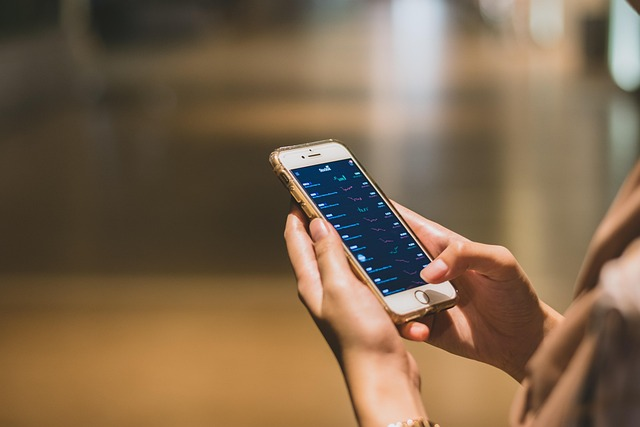You unlock your phone. Tap an app. Share a photo, send a message, order food. Sounds harmless, right?
What you don’t see is the invisible marketplace happening behind that innocent tap. Your location, browsing habits, contacts, and even the way you hold your phone—it’s all being collected, packaged, and sold faster than you can say “terms and conditions.”
Here’s the thing most people don’t realize: mobile apps aren’t just tools anymore. They’re data-harvesting machines disguised as convenience. And if you’re not paying attention to privacy and security, you’re essentially handing over the keys to your digital life.
What Mobile Apps Actually Know About You (Spoiler: Everything)
Think you’re just downloading a flashlight app? Think again.
Most mobile applications request permissions that go way beyond what they actually need to function. That simple weather app? It probably wants access to your camera, microphone, contacts, and precise location. The reasoning sounds logical—”We need location data to show accurate weather”—but what they don’t mention is how that data gets shared with third-party advertisers.
Your smartphone knows when you wake up, where you work, who you call, what you buy, and even how fast you’re walking. Some apps can detect if you’re driving, flying, or sitting still. They build psychological profiles based on your app usage patterns. Are you a night owl who shops impulsively after 10 PM? There’s a data point for that.
The scary part isn’t just the collection—it’s the connections. When multiple apps share data, they create a frighteningly detailed picture of your entire life. Suddenly, your fitness tracker data gets combined with your shopping habits, social media activity, and location history. The result? A digital twin that might know you better than you know yourself.
How Poor App Security Puts Your Personal Information at Risk
Let’s talk about something that keeps cybersecurity experts awake at night: most mobile apps have terrible security practices.
You’ve probably heard about massive data breaches hitting major companies. But here’s what doesn’t make headlines—smaller app developers often have even weaker security measures. They store user data in unsecured databases, use outdated encryption methods, or worse, transmit sensitive information without any protection at all.
Ever notice how some apps ask for your social security number or banking details? Many users hand over this information without questioning how it’s being protected. The harsh reality is that many apps store this data in plain text files that anyone with basic hacking skills can access.
Then there’s the issue of app updates. When security vulnerabilities are discovered, responsible developers push out patches quickly. But if you’re not updating your apps regularly—or if the developer has abandoned the app entirely—you’re essentially walking around with an unlocked door to your personal data.

Man-in-the-middle attacks are another nightmare scenario. When you’re using public Wi-Fi and an app doesn’t use proper encryption, hackers can intercept everything you’re sending and receiving. Your login credentials, personal messages, payment information—all of it floating through the air for anyone to grab.
The Hidden Costs of Ignoring Mobile Privacy
Here’s where things get personal—and expensive.
Identity theft isn’t just about someone stealing your credit card number anymore. Modern identity thieves use the data from poorly secured apps to build complete fake identities. They know your habits, your friends, your favorite restaurants. They can answer security questions, bypass two-factor authentication, and convince customer service representatives that they’re actually you.
But the financial impact goes beyond direct theft. Poor privacy practices can affect your insurance rates, job prospects, and even housing applications. Some employers now check social media and data broker profiles before making hiring decisions. Insurance companies use app data to assess risk levels. Landlords run digital background checks that include information harvested from mobile apps.
There’s also the psychological cost that people rarely discuss. When you lose control of your personal information, it creates a sense of vulnerability that’s hard to shake. You start wondering: who’s watching? What do they know? How is this information being used against me?
The manipulation factor is equally concerning. Apps use your behavioral data to trigger specific responses—making you spend more money, stay online longer, or share more personal information. It’s not just advertising; it’s psychological engineering designed to exploit your decision-making processes.
How to Choose Apps That Actually Protect Your Privacy
So how do you navigate this digital minefield without going completely off the grid?
Start by becoming a permissions detective. When installing new apps, actually read what they’re requesting access to. If a calculator app wants access to your contacts and location, that’s a massive red flag. Ask yourself: does this app really need this permission to function, or is it just collecting data to sell?
Look for apps that practice “data minimization”—they only collect what they absolutely need and delete it when it’s no longer necessary. These companies usually make their privacy practices clear and easy to understand, not buried in 50-page legal documents written in incomprehensible jargon.
Pay attention to where your data is stored. Apps that keep data on your device rather than uploading it to remote servers are generally safer. End-to-end encryption is another non-negotiable feature, especially for messaging and financial apps.
Check the developer’s track record. Have they been involved in previous data breaches? Do they regularly update their apps? Do they respond to security researchers who report vulnerabilities? A company’s history tells you a lot about their commitment to protecting user privacy.
Consider the business model. “Free” apps have to make money somehow, and if they’re not charging users, they’re probably selling user data. Apps with transparent pricing models—where you pay upfront or through subscriptions—often have better privacy practices because they don’t need to monetize your personal information.
Warning Signs That an App Can’t Be Trusted
Some red flags are obvious, but others are surprisingly subtle.
Be suspicious of apps that ask for permissions immediately upon opening, before you’ve even had a chance to understand what the app does. Legitimate apps usually explain why they need specific permissions and allow you to use basic features without granting access to sensitive data.
Check the app store reviews, but read between the lines. Fake reviews are common, but genuine user complaints about privacy issues, unexpected charges, or suspicious behavior are worth taking seriously. Look for patterns in the complaints rather than focusing on isolated incidents.
Apps that frequently change their privacy policies should raise concerns. While companies do need to update their policies as laws change, constant revisions often indicate that they’re finding new ways to monetize user data or respond to regulatory pressure. Such behavior may also reflect deeper issues in their cloud security architecture, where policies and enforcement are inconsistently implemented across services.
Poor customer support is another warning sign. If an app developer doesn’t respond to user concerns or makes it difficult to contact them, they’re probably not going to be responsive when it comes to security issues or data deletion requests.
When working with professional teams to develop secure applications, companies like Superside emphasize the importance of building privacy considerations into the design process from day one. This approach ensures that security isn’t an afterthought but a fundamental aspect of the user experience.
The Future of Mobile Privacy and What You Can Do Today
The good news? Privacy awareness is finally becoming mainstream, and new regulations are forcing companies to be more transparent about their data practices.
Laws like GDPR in Europe and CCPA in California are giving users more control over their personal information. You now have the right to know what data companies collect, how they use it, and in many cases, the right to have it deleted entirely.
But don’t wait for regulations to protect you. Start taking control of your digital privacy today by auditing the apps on your phone. Delete the ones you don’t use, review the permissions for the ones you keep, and look for privacy-focused alternatives to apps that seem overly invasive.
Use your phone’s built-in privacy features. Both iOS and Android now offer detailed privacy dashboards that show which apps are accessing your data and when. Set up app tracking transparency, limit ad personalization, and use features like “Sign in with Apple” or Google’s privacy-focused login options when available.
Consider using a VPN, especially when connecting to public Wi-Fi. For Firefox users, a great option is firefox VPN, which adds an extra layer of security and helps keep your browsing private. Enable automatic app updates to ensure you’re always running the latest security patches. And most importantly, trust your instincts—if an app feels sketchy or asks for information that seems unrelated to its function, find an alternative.

Your privacy isn’t just about hiding things you don’t want others to see. It’s about maintaining control over your own life, your decisions, and your future. Every time you download an app without considering its privacy implications, you’re potentially giving away a piece of that control.
The question isn’t whether you have something to hide—it’s whether you want to remain the author of your own story.


